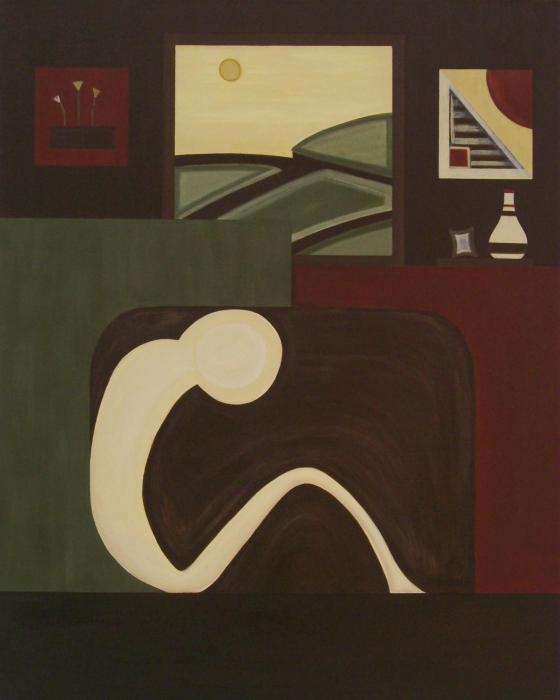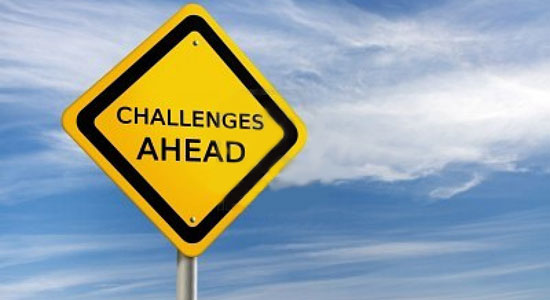 On a long, blustery walk to campus one morning at the end of last year, a Desert Island Discs podcast consolidated some of my scattered thoughts about the importance and difficulties of academic stoicism. It was the episode featuring Aung San Suu Kyi, and towards the end of the recording, she said:
On a long, blustery walk to campus one morning at the end of last year, a Desert Island Discs podcast consolidated some of my scattered thoughts about the importance and difficulties of academic stoicism. It was the episode featuring Aung San Suu Kyi, and towards the end of the recording, she said:
I’m not terribly fond of melodrama. I think that when people have chosen a certain path, they should walk it with satisfaction and with determination and not try to make it appear as a tremendous sacrifice. I think, then, it’s like asking for something back, saying ‘Here I am, making this sacrifice’, and I don’t think that you should do it. Whatever you do out of your own free will, that should be a gift that you give to life, or to those whom you love.
When I arrived at my desk, I rewound the recording and jotted this down, word-for-word, with the resolution; “No more self-pitying PhD statuses”. I’d been using social media at times to express the frustrations and difficulties of studying for a doctorate, whilst finding similar posts from friends who were also struggling strangely irritating. This avowed hypocrisy, I recognise, has its roots in my own internal conflict about the extent to which those of us who are lucky enough to be undertaking research at PhD level should complain about the difficulties on the path we have chosen. It also raises questions about the role played by social networking sites in documenting and influencing mental health.
 Academia makes competitors of us all, and as an academic-in-training looking to forge a career in this sector, I often succumb to the comparisons game. I don’t consider myself a competitive person; I didn’t excel in sports and never play board games to win, but I compare myself to my PhD peers more often than I’d care to admit, weighing their growing CVs against my own in my head and imagining how we’d fare against each other if applying for the same roles. I scrutinize their online posts about thesis progress and bank that information in the mental profile I construct for each of them, knowing at the same time that this is both unhelpful and unhealthy. The conclusions I form about progress and achievement are predictable: it’s clear that each of us have strengths and weaknesses in different areas, but this understanding is not enough to circumvent my conviction that they are all handling the challenges of academia better than I am able to. The question I’m left with as I recover from these periodic flash-comparison sessions is: How can we have productive, open conversations with each other about the many difficulties of ‘learning’ academia without sounding (and feeling) like martyrs to the cause?
Academia makes competitors of us all, and as an academic-in-training looking to forge a career in this sector, I often succumb to the comparisons game. I don’t consider myself a competitive person; I didn’t excel in sports and never play board games to win, but I compare myself to my PhD peers more often than I’d care to admit, weighing their growing CVs against my own in my head and imagining how we’d fare against each other if applying for the same roles. I scrutinize their online posts about thesis progress and bank that information in the mental profile I construct for each of them, knowing at the same time that this is both unhelpful and unhealthy. The conclusions I form about progress and achievement are predictable: it’s clear that each of us have strengths and weaknesses in different areas, but this understanding is not enough to circumvent my conviction that they are all handling the challenges of academia better than I am able to. The question I’m left with as I recover from these periodic flash-comparison sessions is: How can we have productive, open conversations with each other about the many difficulties of ‘learning’ academia without sounding (and feeling) like martyrs to the cause?
 Like many young trainee academics, I’ve been managing mental health issues for a number of years. Things came to a head during my second year as an undergraduate, when overwork and acute anxiety led to a period of breakdown during which I ceased to function both academically and socially. When I graduated at the end of the following year and began to think about career options, my tutor at the time – a wonderful scholar for whom I had great professional and personal respect – told me: “I think you’d make an excellent postgraduate student, but not a very happy one”. Her words will always remain with me. On good days, I have the clarity of vision to appreciate the value of the work I’m undertaking and to feel excitement at the contribution my interdisciplinary research could make across a range of fields. I’m able to draw conclusions from the external facts which support this confidence: my academic achievements to date; the support of various funding bodies; the apparently unwavering belief of my very supportive supervisor, and the positive responses of other scholars who encounter my work in thesis advisory meetings or at conferences.
Like many young trainee academics, I’ve been managing mental health issues for a number of years. Things came to a head during my second year as an undergraduate, when overwork and acute anxiety led to a period of breakdown during which I ceased to function both academically and socially. When I graduated at the end of the following year and began to think about career options, my tutor at the time – a wonderful scholar for whom I had great professional and personal respect – told me: “I think you’d make an excellent postgraduate student, but not a very happy one”. Her words will always remain with me. On good days, I have the clarity of vision to appreciate the value of the work I’m undertaking and to feel excitement at the contribution my interdisciplinary research could make across a range of fields. I’m able to draw conclusions from the external facts which support this confidence: my academic achievements to date; the support of various funding bodies; the apparently unwavering belief of my very supportive supervisor, and the positive responses of other scholars who encounter my work in thesis advisory meetings or at conferences.
In these rare moments, I am able to tell myself (if reluctantly – and always privately) that I am very good at what I do and have the requisite combination of ability, personality and stamina to ‘make it’. I can admire the multitasking brilliance of ECRs I follow on Twitter and look forward to a time when I’ll have the confidence to develop my own voice in a similar way, communicating intelligently and engagingly on topics of interest and expertise. On bad days, I torture myself for not being at that place already and am unable to face the simplest of tasks: getting out of bed; taking a shower; making lunch. I can focus only on the vast amount of work that I have not read and the large proportion of my thesis that is still sketchily defined and, as yet, unwritten. At various times, I’ve benefited enormously from the support of my partner, family, friends and counselling services, but I also feel isolated by how much they don’t – and can’t – understand about the unique combination of pressures specific to a particular doctoral project on a career path paved with a growing number of challenges. When a parent suggests I “talk to my supervisor” or my partner asks me to take a day off, I agree in principle, whilst telling myself silently that their ‘real-world’ logic just doesn’t apply.
 Over the years, I’ve taken proactive steps towards better self-care, both mentally and physically. Counselling and antidepressants have both been enormously helpful in establishing a degree of stability and self-understanding. I now recognize how centrally important it is that I feel in control of my life and work and I work hard wherever possible to ensure this, through healthy eating, exercise and seeking out help and advice when I need it. Sometimes I succeed, but more often than not, as new responsibilities and pressures are introduced (chapter deadlines, public engagement projects, teaching, article publication), I feel like I’m fighting a losing battle. Like the anonymous blogger who contributed a post to this discussion recently, and as Nadine Muller articulates in her post ‘An Anxious Mind’, I worry about the long-term sustainability of a life constantly lived in high-tension, and whether I can – or should – continue to pursue this as a modus operandi.
Over the years, I’ve taken proactive steps towards better self-care, both mentally and physically. Counselling and antidepressants have both been enormously helpful in establishing a degree of stability and self-understanding. I now recognize how centrally important it is that I feel in control of my life and work and I work hard wherever possible to ensure this, through healthy eating, exercise and seeking out help and advice when I need it. Sometimes I succeed, but more often than not, as new responsibilities and pressures are introduced (chapter deadlines, public engagement projects, teaching, article publication), I feel like I’m fighting a losing battle. Like the anonymous blogger who contributed a post to this discussion recently, and as Nadine Muller articulates in her post ‘An Anxious Mind’, I worry about the long-term sustainability of a life constantly lived in high-tension, and whether I can – or should – continue to pursue this as a modus operandi.
 Thinking about the many obstacles on the road ahead, I can’t help but feel pessimistic and wonder how those around me at the same stage could fail to feel the same. Taking an academic path is not a logical choice. The dearth of academic jobs, the short-term contracts typical of postdoctoral and ECR posts and the financial and geographical instability of a career in the academy paint a pretty grim picture. I admire honest and insightful writing about the challenges and rewards of being a public intellectual, both here on The New Academic and elsewhere (see Joanne Bailey’s recent post here and Matt Houlbrook’s piece here), but as I read them, I can’t help but ask myself whether I have the energy to advance on the battlefield.
Thinking about the many obstacles on the road ahead, I can’t help but feel pessimistic and wonder how those around me at the same stage could fail to feel the same. Taking an academic path is not a logical choice. The dearth of academic jobs, the short-term contracts typical of postdoctoral and ECR posts and the financial and geographical instability of a career in the academy paint a pretty grim picture. I admire honest and insightful writing about the challenges and rewards of being a public intellectual, both here on The New Academic and elsewhere (see Joanne Bailey’s recent post here and Matt Houlbrook’s piece here), but as I read them, I can’t help but ask myself whether I have the energy to advance on the battlefield.
 In the meantime, I try to remember that my ability to manage these pressures will improve over time and through experience, and that I’m “playing the long game” in making a series of sacrifices which will pay off further down the line, if I keep faith. I look at friends who are unfunded and balance the stresses of academic expectation on a full-time PhD with one or more part-time jobs, or those I met during my BA and MA who were desperate to take their research further but were lacking the high marks or money to do so. Then I sign into Facebook, draft my grumbling PhD-related status, delete it instead of posting it, and log out.
In the meantime, I try to remember that my ability to manage these pressures will improve over time and through experience, and that I’m “playing the long game” in making a series of sacrifices which will pay off further down the line, if I keep faith. I look at friends who are unfunded and balance the stresses of academic expectation on a full-time PhD with one or more part-time jobs, or those I met during my BA and MA who were desperate to take their research further but were lacking the high marks or money to do so. Then I sign into Facebook, draft my grumbling PhD-related status, delete it instead of posting it, and log out.
Hi,
I just wanted to say thank you for articulating some of the pitfalls that come with comparing yourself you your peers, something which I am tempted to do myself. As someone who similarly had issues with anxiety as an undergraduate I too have worried about carrying that with me as a PhD student, where the pressure is greater. Although the pressure still gets to me, I think I’ve gotten better at being kinder to myself and have learnt ways to stop myself when I start playing the comparison game. I’m also much better acknowledging my existing achievements, something which is often difficult when you are always looking elsewhere for someone to compare yourself to. especially when you never come out as the winner of that comparison! I wish you the best on your PhD journey!
p.s thank you Nadine for this series, it highlights some really important issues with academia today!